Which Screw to Use for Drywall? For 1/2 inch, 5/8 inch Drywall?
For different types of drywall, we need to use different types of screws. Do you also get confused in choosing the right screw? Which Screw to Use for Drywall?
For 1/2-inch drywall, the recommended screw lengths are 1 ¼ inches or 1 ⅝ inches. These screws ensure a secure and precise attachment, providing a perfect match for most residential applications. But for 5/8-inch drywall, you’ll need longer screws, such as 1 ⅝ inches or 2 inches, to handle the extra thickness and achieve an unshakable hold.
Now, you might be wondering: “How do I find the perfect screw for my drywall?” Well, fear not, my fellow DIY enthusiasts, because in this article, I will unravel the mystery and provide you with the solution you seek.
In the following sections, I will delve into the factors you must consider when selecting drywall screws, including length, gauge, head type, and material. By the end of this article, you’ll have all the knowledge and confidence to choose the ideal screw for your drywall project.
Factors to Consider when Choosing Drywall Screws
When it comes to choosing the right screws for your drywall project, there are a few important factors you need to keep in mind. Let’s dive into these factors and make sure you’re armed with the knowledge you need for a successful installation.
First up, we have the length of the screw. You want to make sure your screws are the Goldilocks of the drywall world—not too short, not too long, but just right! Using screws that are too short won’t give you a secure hold, while screws that are too long can cause some serious damage. So, measure twice, and screw once!
Next on our list is the gauge of the screw. Now, we’re not talking about how intimidating the screw looks or how many push-ups it can do. Gauge refers to the thickness of the screw. For most drywall projects, a #6 gauge screw is the go-to choice. But if you’re working with thicker drywall or have a Hulk-like load-bearing situation, you might want to consider a beefier #8 or #10 gauge screw.
The head type of the screw is also something to consider. We’ve got two options here: bugle head and flat head. The bugle head is like the popular kid in school—it sits flush with the drywall surface and makes everyone else jealous.
The flat head, on the other hand, is a bit more modest and likes to be slightly countersunk below the surface. Both work just fine, but if you want to avoid any jealous stares from your drywall, go for the bugle head.
Last but not least, we have the material of the screw. We’re not asking you to take the screw out for a fancy dinner or anything, but choosing the suitable material is important. Steel screws are the usual suspects for drywall projects, but if you’re working in a moisture-prone area like a bathroom, consider using coated screws that have better corrosion resistance. No rusty screws ruining your drywall party!
So there you have it, my DIY enthusiast pals! Consider these factors—length, gauge, head type, and material—when choosing your drywall screws. With the right screws in hand, your drywall project will be rock solid. And hey, if all else fails, just remember that a little bit of humor can go a long way when working with drywall. Just be sure to leave the “knock-knock” jokes to the comedians and not the screws.
Drywall Screw Threads
Hey there, DIY champs! We’ve covered screw sizes and all the nitty-gritty details, but we can’t forget about the often-overlooked hero of the screw—the threads! Yes, those little grooves that make the screw twist and turn like a rollercoaster ride. So, let’s dive into the fascinating world of drywall screw threads!
When it comes to drywall screws, you’ll notice two main types of threads: fine threads and coarse threads. Fine threads are like the smooth talkers of the screw world—they’re sleek, slim, and perfect for softer materials like wood or metal studs. On the other hand, coarse threads are the heavy lifters. They’re thick, and sturdy, and excel at gripping harder surfaces such as concrete or masonry. It’s like comparing a delicate ballet dancer to a burly weightlifter.
Now, here’s a little secret for you: most drywall screws come with fine threads. Why, you ask? Well, it’s all about that sweet, sweet grip. The fine threads sink into the drywall effortlessly, providing a secure hold without causing any unwanted damage. It’s like a tight hug from your screw—firm, but gentle.
Best Screws for Different Sizes of Drywall
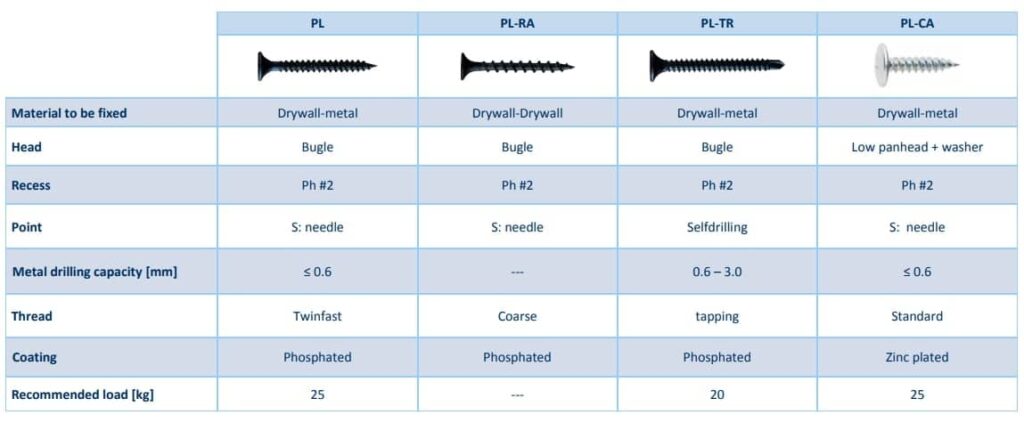
Alright, let’s talk screws! When it comes to different sizes of drywall, you need to choose the right screws to ensure a sturdy and reliable installation. So, grab your measuring tape and get ready to dive into the world of screw sizes!
1/2-inch drywall
For our first contender, we have the 1/2-inch drywall. It’s like the Goldilocks of drywall—just the right thickness for most residential applications. So, what screw sizes should you use for this baby? Drumroll, please! The recommended lengths are 1 ¼ inches or 1 ⅝ inches.
These screws will penetrate the drywall and secure it to the underlying structure with finesse. Talk about a perfect match!
5/8-inch drywall
But wait, there’s more! If you’re dealing with the big guns—5/8-inch drywall—you’ll need some longer screws to handle the extra thickness.
We’re talking about screws that can go the distance and provide an unshakable hold. So, what are our options? Look no further than the 1 ⅝-inch or 2-inch screws. These bad boys will get the job done, ensuring your 5/8-inch drywall stays put like a champ.
Now, I know what you’re thinking: “Can’t I just eyeball it and use whatever screws I have lying around?” Oh, my dear DIY friend, that’s a slippery slope. You see, using the wrong screw size can lead to a disaster. It’s like trying to fit a square peg into a round hole—frustrating and ultimately futile. So, let’s save ourselves the headache and stick to the recommended screw sizes for each drywall thickness.
To make things easier for you, I’ve prepared a handy-dandy table with all the screw sizes you’ll need for different drywall thicknesses:
| Drywall Thickness | Recommended Screw Length |
|---|---|
| 1/2 inch | 1 ¼ inches or 1 ⅝ inches |
| 5/8 inch | 1 ⅝ inches or 2 inches |
There you have it, folks! Keep this table in your back pocket (not literally, as that would be uncomfortable) for easy reference during your next drywall adventure. With the right screw sizes, you’ll be on your way to a successful installation in no time.
Now, before I go, let’s add a sprinkle of humor to lighten the mood. Remember, working with drywall can be a bit frustrating at times, but hey, it’s all part of the DIY journey. So, embrace the occasional misaligned screw or the moment when your measuring tape decides to rebel. Laugh it off, my friends, and remember that a little humor can go a long way in making your DIY experience enjoyable.
Can You Use Regular Screws in Drywall?
Well, my DIY pals, it’s time for a reality check. Regular screws may seem like a quick fix, but when it comes to drywall, they’re like a square peg in a round hole.
Drywall screws are specially designed for the task at hand, with fine threads, sharp points, and bugle heads that work their magic. So, resist the temptation to repurpose those random screws you found in your toolbox. Stick to the designated drywall screws for a successful and secure installation.
Remember, when it comes to drywall, be a screw pro, not a screw-up!
Can You Reuse Drywall Screws?
Now, I know we all love to recycle and repurpose, but when it comes to drywall screws, it’s time to let go of the past and embrace the new. Here’s the scoop:
In most cases, it’s not recommended to reuse drywall screws. Sure, those screws might have served you well in their previous life, but reusing them for another drywall project can spell trouble. Why, you ask? Well, over time, screws can lose their holding power. They may become worn or damaged, making them less effective in securing your drywall with the strength it needs.
Think of it like a worn-out pair of sneakers. Sure, they were once reliable and supportive, but after miles of wear and tear, they just can’t provide the same level of comfort and stability. The same principle applies to drywall screws. When you reuse them, you’re compromising the integrity of your installation and potentially risking sagging or loosening down the road. And nobody wants a saggy wall, right?
Now, I get it. Screws are inexpensive, and it may be tempting to save a few pennies by reusing them. But trust me, my frugal friends, it’s better to invest in fresh screws for each new drywall project. It’s a small price to pay for the peace of mind that comes with knowing your drywall is securely fastened.
So, resist the urge to dig through your old screw collection. Treat yourself to a brand-new batch of drywall screws for each project, and let those worn-out screws retire in style. They’ve served their purpose and deserve a well-earned break.
Remember, my DIY warriors, a strong and reliable drywall installation starts with fresh screws. Don’t let nostalgia get the best of you—say goodbye to the old and embrace the new. Happy screwing, and may your drywall projects be a testament to your craftsmanship and screw-savviness!
- IMPORTANT READ Can You Reuse Drywall Sheets? FAST & CLEAN
Conclusion
By understanding these factors, you’ll be well-equipped to tackle your drywall projects with confidence. Remember, investing in quality screws is an investment in the long-term stability of your installation. So, let’s bid farewell to mismatched screws and saggy walls, and instead, embrace the right screws for the job. Alright, that’s a wrap! Until next time, keep your screws straight and your DIY dreams alive. Happy hammering!
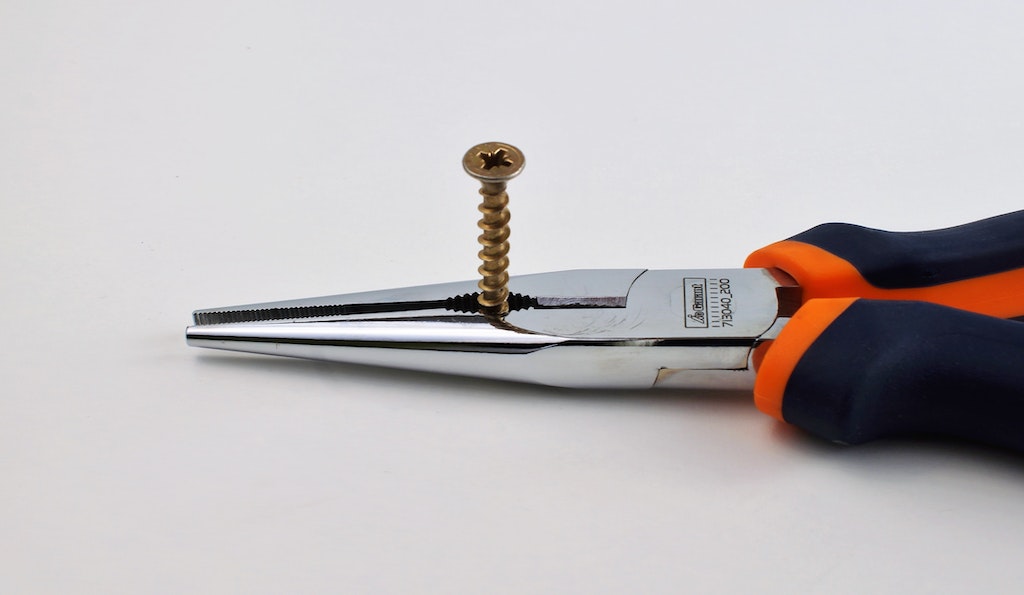
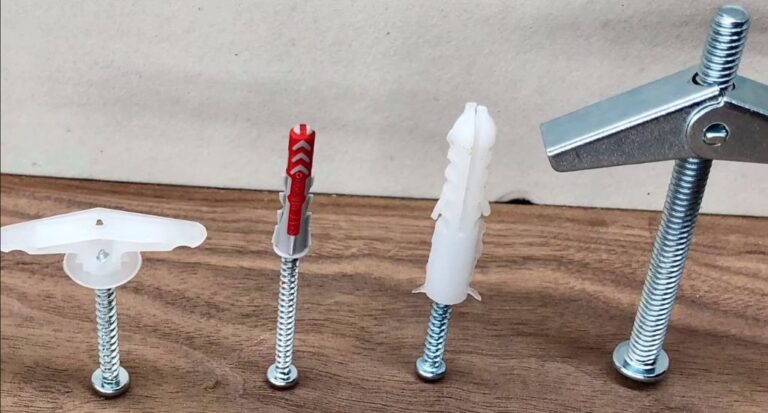
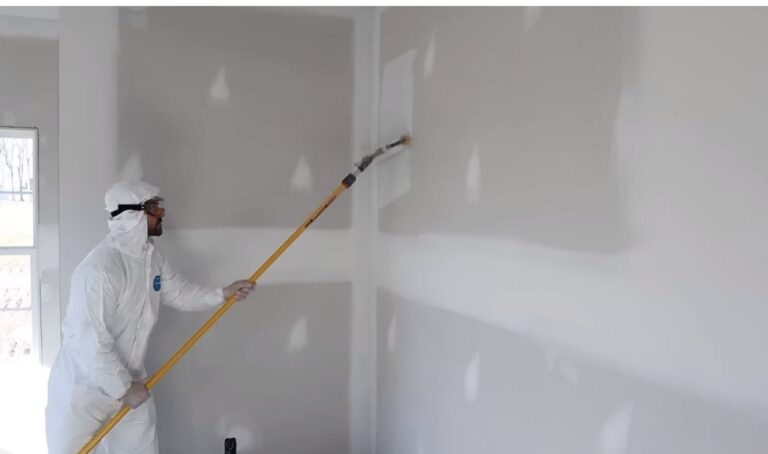
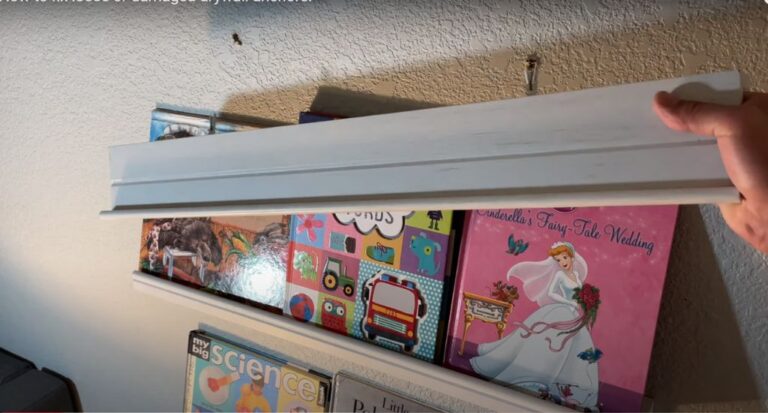
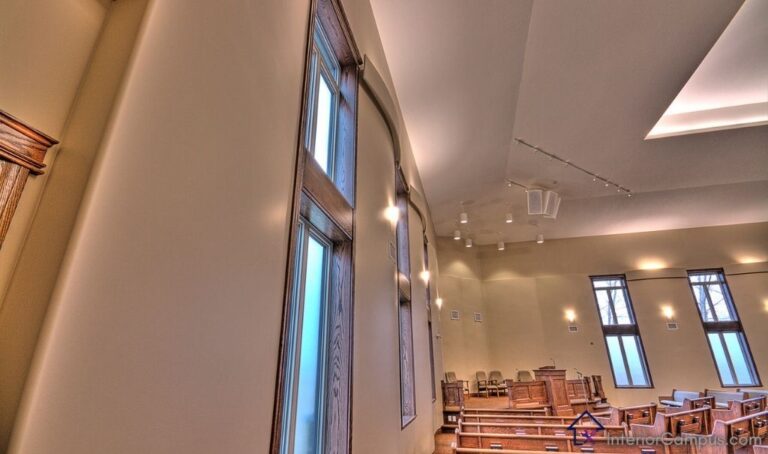
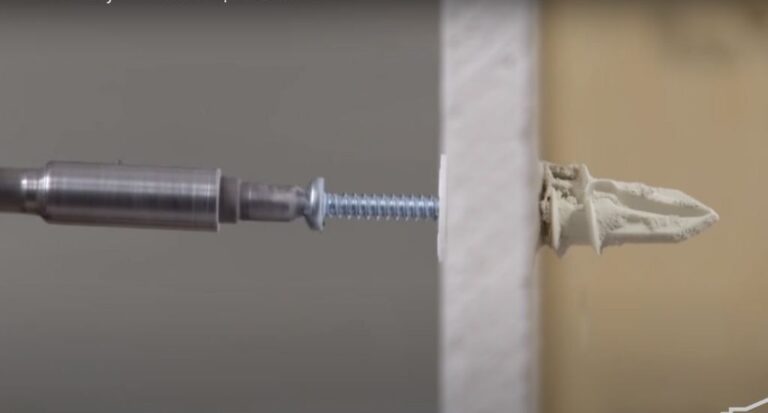
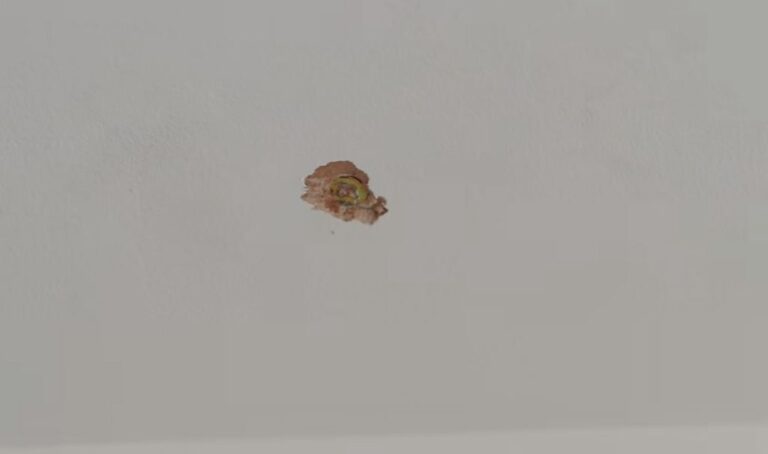
One Comment